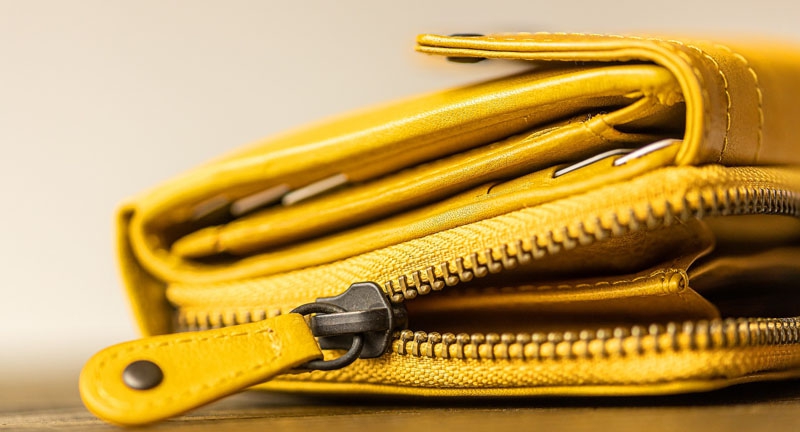Seven Things You Should Not Keep in Your Purse or Wallet
Posted On: July 14, 2020 by Falcon National Bank in: Your Financial Life | Personal Banking

Before leaving the house, many people do a quick check: Do I have my phone, keys, wallet, etc. Something people don’t often think about when they grab their purse or wallet before heading out the door is the items they already have inside.
Do you really need to take those items with you every time? More importantly, is it potentially dangerous to take these items with you every day? Here are seven things you should not keep in your purse or wallet.
Your Social Security Card
At the top of the list is your social security card. This tiny blue piece of paper is the most useful string of numbers for identity thieves. Your social security card in the wrong hands can impact your finances for years to come. Scammers can apply for a credit card, file tax returns–even get a job using your social security number.
Also, if you have ever had the misfortune of losing or accidentally putting your social security card through the laundry, you’ll know replacing it is no easy process. Some states allow you to replace your card online, though Minnesota is not currently one of them.
Your Birth Certificate
People don’t often make a habit of carrying this document with them. Often what happens is they need it for a special reason, then forget they have it in their wallet. Just like your social security number, this contains vital info about you that scammers can use to steal your identity.
Your Passport
A Passport is a handy document that has a ton of uses, but again, it has a wealth of information about you that causes identity thieves to instantly start drooling. If you are traveling abroad, don’t carry your passport with you everywhere. If you don’t need it, opt to leave your passport in your hotel safe (pro tip: ask if the hotel is insured, and for how much).
Your Checkbook
You don’t see people writing checks regularly these days, but they still come in handy from time to time. Anyone with a checking account likely has a checkbook, even if they don’t use it. Checkbooks used to be a good alternative to cash and a helpful backup in emergency situations, but as technology has evolved, there are plenty of options that don’t require you to carry a list of papers that list your bank’s routing number and your account number.
If your purse or wallet is stolen or lost, pausing your checks is the first step, but you’ll likely need to close your entire checking account. This means disruptions to any of your accounts, automatic payments, subscriptions services, and more.
Spare Credit Cards
Keeping good credit might mean saving credit accounts that you don’t use as often, but you should not store these cards or their information in your wallet or purse. Especially if you don’t use them that often, you might not notice they’ve gone missing until someone has racked up a lot of debt in your name.
A List of Passwords
This one is a no-brainer. Instead of writing down a list of your passwords, use a secure password saving program like Dashlane, Keeper, or LastPass. You’ll only need to remember one password going forward, and best of all, many programs are completely free.
Spare Keys
Spare keys are dangerous to carry in your purse or wallet because there is more than likely something else in your wallet that lists your home address. A spare key in your wallet–whether it’s to your house, a storage shed, or a friend or family member’s house–is an invitation to a burglar. Leave these at home or in a safe, hidden place unless you are using them.
So, Where Should You Store These Items?
A safe is a good option. Pick a secure, somewhat hidden location in your home that is safe from natural issues like flooding or mold, out of the reach of children, and not easily located should your home be burglarized.
When choosing the items you include in your purse or wallet, think about what would happen should you lose your purse or wallet. Ideally, it would be an inconvenience that might require a call to your bank, a fraud alert on your credit, a trip to the DMV, and a police report.

0 comments